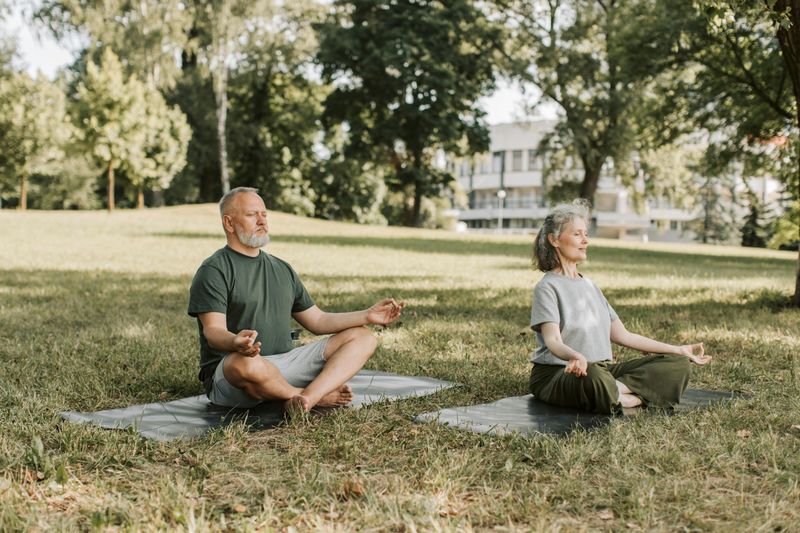12 Simple Daily Habits That Quietly Transform Your Life

The small actions we take each day shape who we become over time. While we often focus on big goals, it’s actually our everyday habits that create lasting change. These 12 simple practices might seem small on their own, but when done consistently, they work behind the scenes to transform your energy, mindset, and overall quality of life.
1. Ditch Alcohol

Ever noticed how one month without drinks can reset your entire system? Taking a 30-day alcohol break isn’t about punishment—it’s a gift to your future self. Your mornings become clearer, your sleep deepens, and you suddenly have more genuine conversations.
Many people discover they don’t actually miss drinking as much as they expected. Social gatherings become opportunities for real connection rather than fuzzy memories.
The best part? You rebuild trust with yourself by honoring a commitment. This simple pause creates space to examine your relationship with alcohol without judgment, often leading to more mindful choices when the month ends.
2. Prioritize Sleep Like It’s Your Job

Sleep isn’t a luxury—it’s essential maintenance for your brain and body. Treating bedtime as non-negotiable means establishing a wind-down ritual that signals to your body it’s time to rest. This might look like dimming lights an hour before bed or keeping your phone outside the bedroom.
Your sleep environment matters tremendously. Cool temperatures, darkness, and comfortable bedding create the conditions for deep, restorative rest.
When you defend your sleep boundaries, everything improves—your mood stabilizes, thinking clarifies, and energy rebounds. Remember: no one ever regretted getting a good night’s sleep.
3. Commit to Daily Movement

When exercise shifts from a chore to a celebration of what your body can do, it becomes revolutionary. Whether it’s kitchen dancing, nature walks, or lifting weights, joy is the secret ingredient.
Consistency trumps intensity every time. A 15-minute daily movement practice builds more strength and wellbeing than an occasional two-hour gym session.
Pay attention to how different movements affect your energy and mood. Some days call for gentle stretching, others for heart-pumping activity. Your body knows what it needs—the practice is learning to listen.
4. Rebuild Your Relationship with Food

Food isn’t just fuel—it’s connection, pleasure, and nourishment. Releasing rigid food rules creates space for intuitive eating that honors both enjoyment and wellbeing. Notice how different foods make you feel, not just in the moment but hours later.
Eating becomes simpler when you focus on adding nourishing options rather than restricting “bad” foods. More vegetables, fruits, and whole foods naturally crowd out less nourishing choices.
Slow down during meals to actually taste what you’re eating. This simple practice helps you recognize satisfaction signals and transforms eating from a mindless activity into a pleasurable ritual that supports your energy throughout the day.
5. Stay Prepared for Success

Turning plans into action starts with preparation. Ready-to-go healthy snacks stop energy dips that trigger poor choices, and keeping workout clothes handy removes excuses when motivation strikes.
Calendar blocking creates protected time for what matters. Scheduling self-care appointments with the same commitment as work meetings signals to yourself and others that your wellbeing is non-negotiable.
The most powerful preparation happens mentally—visualizing how you’ll handle challenging situations before they arise. This practice builds resilience and helps you stay aligned with your values when life gets chaotic.
6. Understand Your Social Battery

Your need for connection and solitude isn’t random—it’s valuable information about your energetic capacity. Some days you’re naturally drawn to conversation; other days require quiet restoration. Both states are equally valid and necessary.
Learning to communicate your energy levels without apology transforms relationships. Simple phrases like “I need some alone time to recharge” help others understand your boundaries aren’t personal rejections.
The freedom to honor your social needs creates authentic connections. When you’re present by choice rather than obligation, you bring your full self to interactions—and that genuine presence is what creates meaningful relationships.
7. Reclaim Your Mornings

The first hour after waking sets the tone for your entire day. Reaching for your phone immediately hijacks your attention and puts others’ priorities ahead of your own. Creating a phone-free morning ritual allows you to enter the day with intention rather than reaction.
Simple practices like stretching, journaling, or savoring tea without distractions ground you in your body and values before the world makes demands. This quiet space allows intuition to surface.
Morning rituals don’t require elaborate routines or early wake-ups. Even ten minutes of presence before engaging with technology can dramatically shift how you experience the day ahead.
8. Curate Your Inputs Mindfully

What you consume shapes your thoughts, whether you’re aware of it or not. Digital detox isn’t about abandoning technology—it’s about becoming intentional with your attention. Unfollowing accounts that leave you feeling inadequate creates mental space for inspiration.
Notifications fragment focus and trigger stress responses. Silencing all but essential alerts allows your nervous system to settle into natural rhythms of concentration and rest.
Reading books rather than endless scrolling feeds your mind with complete thoughts instead of fragments. This simple swap builds attention span and critical thinking while reducing the mental fatigue that comes from processing thousands of disconnected pieces of information.
9. Make Rest a Ritual

Rest isn’t what happens when everything else is done—it’s the foundation that makes everything else possible. Scheduling short breaks throughout your day prevents the exhaustion that leads to burnout. Even five minutes of conscious breathing between tasks can reset your nervous system.
Screen-free evenings signal to your body that it’s time to wind down. The blue light from devices disrupts melatonin production, while the constant stimulation keeps your brain in active mode.
True rest involves giving yourself permission to be unproductive. Embracing the radical idea that your value isn’t tied to output creates space for creativity, healing, and joy to naturally emerge.
10. Let Go of Perfection

Chasing perfection often stops progress in its tracks. When you accept “good enough,” you’re more likely to finish what you start, knowing that regular effort beats perfect effort.
All-or-nothing thinking creates unnecessary failure points. Missing one workout doesn’t mean your fitness journey is ruined—it’s simply one data point in a longer pattern.
Self-compassion isn’t indulgence; it’s strategic. Speaking to yourself with the kindness you’d offer a friend creates resilience that helps you bounce back from setbacks instead of spiraling into shame. This gentle approach paradoxically leads to greater accomplishment than harsh self-criticism ever could.
11. Daily Walking Ritual

More than just exercise, walking acts as medicine for your mental health. Its gentle pace creates space for ideas and solutions to arise naturally, often when you least expect them.
The rhythm of walking regulates your nervous system. Each step helps process stress hormones while the gentle motion creates a moving meditation that’s accessible without special training.
Walking outside adds the bonus of nature connection, which research shows reduces anxiety and improves cognitive function. No special equipment, membership, or skill required—just step outside and allow your body to do what it was designed for.
12. Nervous System Regulation & Boundary Setting

Your nervous system state affects everything from digestion to decision-making. Learning to recognize when you’re in fight-or-flight mode gives you the power to shift back to balance through simple practices like deep breathing or physical movement.
Boundaries aren’t walls—they’re filters that protect your energy. Saying no to what drains you creates space for what nourishes you. This isn’t selfish; it’s sustainable.
Overcommitment keeps your system in constant alert mode. Checking in with your capacity before saying yes prevents the exhaustion that comes from living in perpetual stress. Your calm presence becomes a gift not just to yourself but to everyone around you.

Comments
Loading…